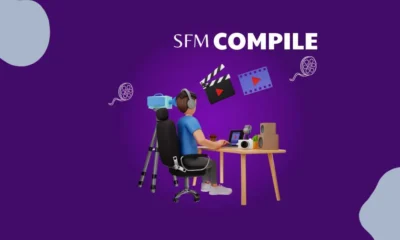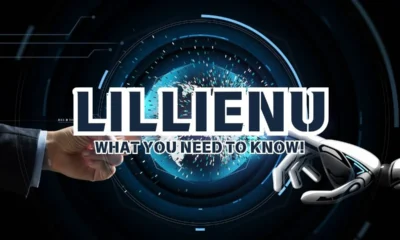TECHNOLOGY
PS1 US BIOS: Essential Firmware for PlayStation 1 Emulation
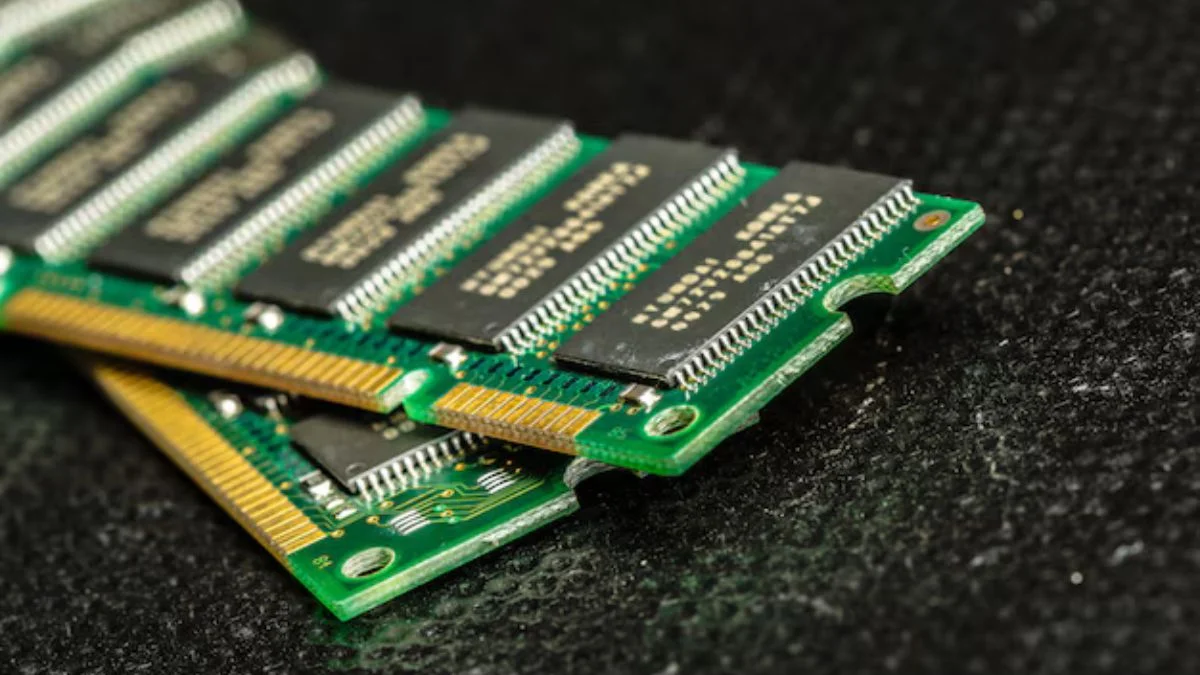
The PS1 US BIOS acts as an essential firmware component which enables proper operation of the Sony PlayStation 1 (PS1) system throughout the North American (NTSC-U) territory. The system program handles the initiation of hardware components and controls game operations while providing support for regional-exclusive games. The PlayStation console contains the BIOS embedded inside itself because this software enables the system startup while controlling game execution and save data management. The emulation environment requires this component because it provides identical functionality to the original PlayStation console which enables smooth gameplay of PS1 games on contemporary devices.
Commonly Used PS1 US BIOS Files
Several BIOS versions exist for PlayStation 1, but the most widely used ones for the NTSC-U region include:
- bin : The most popular BIOS file, often preferred for emulation due to its compatibility.
- bin : A later version that offers slight improvements in system stability.
- bin : A newer revision with minor performance optimizations.
Each version differs slightly in functionality, but they all serve the same fundamental purpose: ensuring the PS1 US BIOS console or emulator functions correctly.
Importance of PS1 US BIOS in Emulation
The PS1 US BIOS is essential for running PlayStation games on emulators such as ePSXe, DuckStation, RetroArch, and PCSX-R. Without the correct BIOS, these emulators may experience compatibility issues, glitches, or performance problems. The BIOS helps to maintain an authentic PlayStation experience by handling system functions like game loading, memory card access, and CD-ROM verification. Since emulators aim to recreate the PS1 environment, using the correct BIOS ensures accurate emulation, providing smoother gameplay and fewer crashes.
Legal Considerations: How to Obtain a PS1 US BIOS
BIOS files are copyrighted by Sony, meaning downloading them from unauthorized sources is illegal. However, users can legally extract the BIOS from their own PlayStation console using specialized hardware or software tools. To remain compliant with copyright laws, PS1 US BIOS is recommended to dump the BIOS from a personally owned PS1 rather than obtaining it from third-party websites. Some emulator developers also offer BIOS alternatives, like HLE (High-Level Emulation), but these may not provide full compatibility with all games.
How to Verify a PS1 US BIOS File
To ensure the authenticity and integrity of a PS1 BIOS file, users often check its MD5 checksum a unique identifier for verifying file correctness. Popular tools for this verification include:
- WinMD5 (Windows)
- MD5 Checker (Mac)
- SHA256sum (Linux)
For instance, the correct MD5 hash for scph1001.bin is 924e392ed05558ffdb115408c263dccf. If a BIOS file does not match the expected checksum, it may be corrupted or tampered with, potentially causing issues during emulation.
Setting Up PS1 US BIOS in Emulators
Once a legal BIOS file is obtained, users need to configure it within their chosen emulator. The process generally involves:
- Placing the BIOS file in the designated folder (e.g., bios folder in ePSXe or DuckStation).
- Configuring the emulator settings to recognize and use the BIOS.
- Testing a game to ensure everything functions properly.
Many emulators also support multiple BIOS versions, allowing users to switch between them for different games.
PS1 US BIOS and Compatibility with Games
Using an authentic PS1 US BIOS improves compatibility with a wider range of games. Some titles require specific BIOS versions to function correctly. For example:
- Final Fantasy VII may experience sound issues without the correct BIOS.
- Gran Turismo 2 performs better with scph1001.bin due to improved CD-ROM handling
- Tekken 3 runs more smoothly with later BIOS versions like scph5501.bin.
These minor differences make it important for gamers to test multiple BIOS files to determine the best one for their favorite titles.
Alternatives to PS1 US BIOS: HLE Emulation
Some PlayStation emulators offer a High-Level Emulation (HLE) option, which attempts to mimic the BIOS without requiring an actual file. While convenient, HLE BIOS lacks full compatibility and may cause:
- Missing animations or sound effects in some games.
- Crashes during loading screens or cutscenes.
- Memory card errors preventing saved games.
For the best emulation experience, it is always recommended to use a real BIOS file instead of relying on HLE emulation.
PS1 US BIOS and Modern PlayStation Emulation
With advances in PS1 emulation, modern emulators like DuckStation and RetroArch have optimized BIOS’s handling, providing enhanced graphics, smoother frame rates, and widescreen support. Features such as:
- Internal resolution scaling (up to 4K)
- Shader enhancements for improved visuals
- Save states for instant game progress saving
All contribute to making PS1 games more accessible and enjoyable on current devices.
Conclusion
The PS1 US BIOS is an integral component for both hardware and software emulation, ensuring smooth gameplay, better compatibility, and an authentic PlayStation experience. Whether playing on an original PlayStation console or using an emulator, having the correct BIOS version can make a significant difference in performance and game stability. For legal and optimal use, PS1 US BIOS is always recommended to extract the BIOS from an original console rather than downloading it from third-party sources.
TECHNOLOGY
What Is SFM Compile? Optimize Your SFM Animations Like a Pro
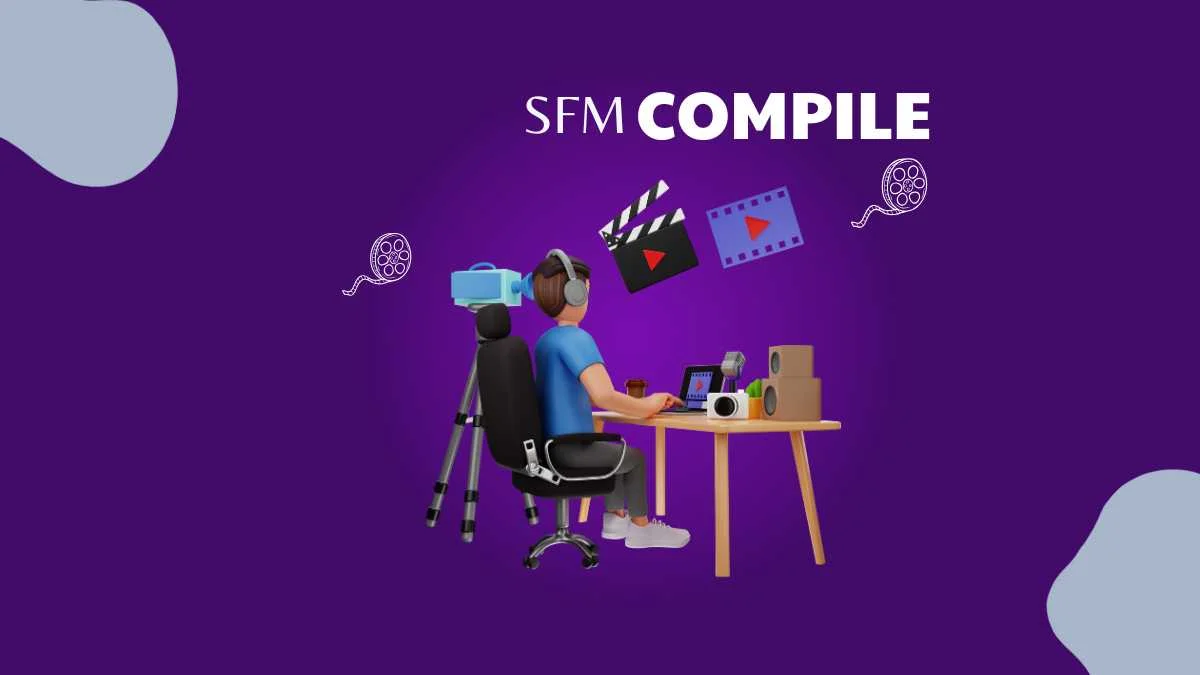
Among digital animations and cinematic narration, Source Filmmaker (SFM) is a content creation tool that has distinguished itself as a highly effective creation tool. Designed by Valve Corporation, SFM enables its users to craft feature-quality animation videos employing the content and surroundings of games played with the help of the Source engine, including Team Fortress 2, Half-Life 2, and Portal games. SFM Compile, also known as the compile process, is one of the key elements for creating a final video in SFM.
What Is SFM Compile?
SFM Compile refers to the process of converting an SFM project—comprised of various assets, camera angles, lighting, audio tracks, and animation sequences—into a finalized video file. It is the final step in the SFM pipeline that transforms a working timeline or session into a distributable, playable media format, typically .mp4 or .avi. This step is critical because it not only translates your creative vision into a consumable product but also ensures synchronization, rendering quality, and performance efficiency.
The Purpose of Compilation in SFM
At its core, compiling in SFM serves to:
- Convert the whole elements of the scene (models, particles and lighting, and camera angles) into a linear form.
- Make voiceovers, background music, and sound effects synchronized.
- Add ultimate lighting, motion blur, and anti-aliasing effects to finish off with a smooth appearance.
- Export the video in a format that works on a site such as YouTube, Vimeo, or game modding sites.
The Components of SFM Compilation
To understand SFM Compile thoroughly, it’s important to break down its key components:
1. Timeline and Session
An SFM project consists of sessions that are edited in a timeline, with various tracks representing animation data, sound, effects, and camera movements. When compiling, SFM reads the data from the timeline and processes it into frames.
2. Render Settings
The render options selected by the user include resolution (ex, 1080p, 4K), frame rate (e.g., 24 or 30 FPS), and quality (AA, depth of field, ambient occlusion). The latter has a direct effect on the quality of the video produced, i.e., how much detailing and smoothing it will contain.
3. Image Sequence vs. Movie Format
SFM extends the controller to two variants of compilation:
- Image Sequence: Creates one image per frame (PNG, TGA, etc.), which can be later pasted together with outside software to create a video. Chosen when a lot of quality is required by the rendering.
- Movie Format: It is directly compiled into an AVI file with codecs such as H.264. Less customizable but easier to decode with a higher chance of having compression artifacts.
4. Audio Rendering
Audio in SFM is synchronized with visual data during compilation. You can either render the audio as part of the video file or export it separately and mix it later using software like Adobe Premiere or Audacity.
The SFM Compile Process: Step-by-Step
Here’s a detailed look at the standard compile workflow in Source Filmmaker:
Step 1: Finalize the Scene
Before compiling, animators must finalize their shots, lighting, audio cues, and effects. This includes:
- Locking cameras
- Smoothing animations
- Applying final lighting passes
- Baking particles and physics
Step 2: Set Up Render Settings
Navigate to File > Export > Movie…. A dialogue box opens where users configure:
- File output path and name
- Render resolution
- Frame rate
- Render type (movie file or image sequence)
- Codec (if rendering directly to video)
- Bitrate and compression quality
Step 3: Choose a Range
Users can choose to render:
- The entire timeline
- Specific shots or time segments
- Preview range (useful for test renders)
Step 4: Render
Clicking the “Export Movie” or “Export Image Sequence” button initiates the compile. The rendering process may take anywhere from a few minutes to several hours, depending on scene complexity and system performance.
Common Compilation Issues and Fixes
| Issue | Solution |
| Crashing during render | Lower resolution or render in image sequence |
| Audio out of sync | Check sound placement on timeline or export audio separately |
| Poor lighting/render quality | Increase lighting samples, enable ambient occlusion |
| Codec errors | Use image sequences and compile via external software like FFMPEG |
Optimization Tips for Efficient SFM Compile
To speed up the compile process and minimize issues, follow these optimization practices:
- Pre-render complex shots to separate image sequences.
- Reduce model complexity by using LOD (Level of Detail) versions when possible.
- Limit particle and physics simulations to only what’s visible on-screen.
- Test small segments before rendering the full scene to check for bugs or sync issues.
Integration with External Tools
Although SFM is self-sufficient for basic compilation, professional workflows benefit from integrating tools like:
- Adobe Premiere Pro: For video editing, transitions, and credits.
- Audacity: For audio cleanup and voiceover edits.
- Blender: To create custom models or scenes that can be imported into SFM.
- FFMPEG: For advanced encoding and format conversion of image sequences.
Use Cases of SFM Compile in Creative Projects
- Fan Films and Machinima: Storytellers are using SFM to create their own stories set in games.
- Game Trailers and Promos: Designers and enthusiasts shoot dramatic trailer videos of gameplay or mods.
- YouTube Usage: Comedy skits, parody videos, and lore videos feature heavy use of SFM.
- Educational Animations: Tutorials, explainer videos, and demonstrations frequently employ SFM to create a sequence animation.
Future Trends and Developments
As the Source 2 engine gains traction and Valve updates its ecosystem, the future of SFM may include:
- Faster compilation engines
- Native support for 4K and VR content
- Real-time ray tracing
- Integration with cloud rendering services
- Plugin support for external editing software
Such advancements would further streamline the compilation process and enhance the visual fidelity of user-generated content.
Conclusion
SFM Compile is not simply an export button, but it is the pathway between visual storytelling and imagination. Proficiency in the process enables the creators with the power to provide cinematic-quality animations capable of engaging viewers on platforms. Be it a basic meme clip or a complex story mode machinima, learning to work with SFM Compile will open the possibilities of Source Filmmaker to its limit. Given constant practice, optimization, and the use of the right tools, animators can transform virtual assets into memorable stories, leaving long-lasting impressions.
TECHNOLOGY
Appfordown: Centralized App Download & Management
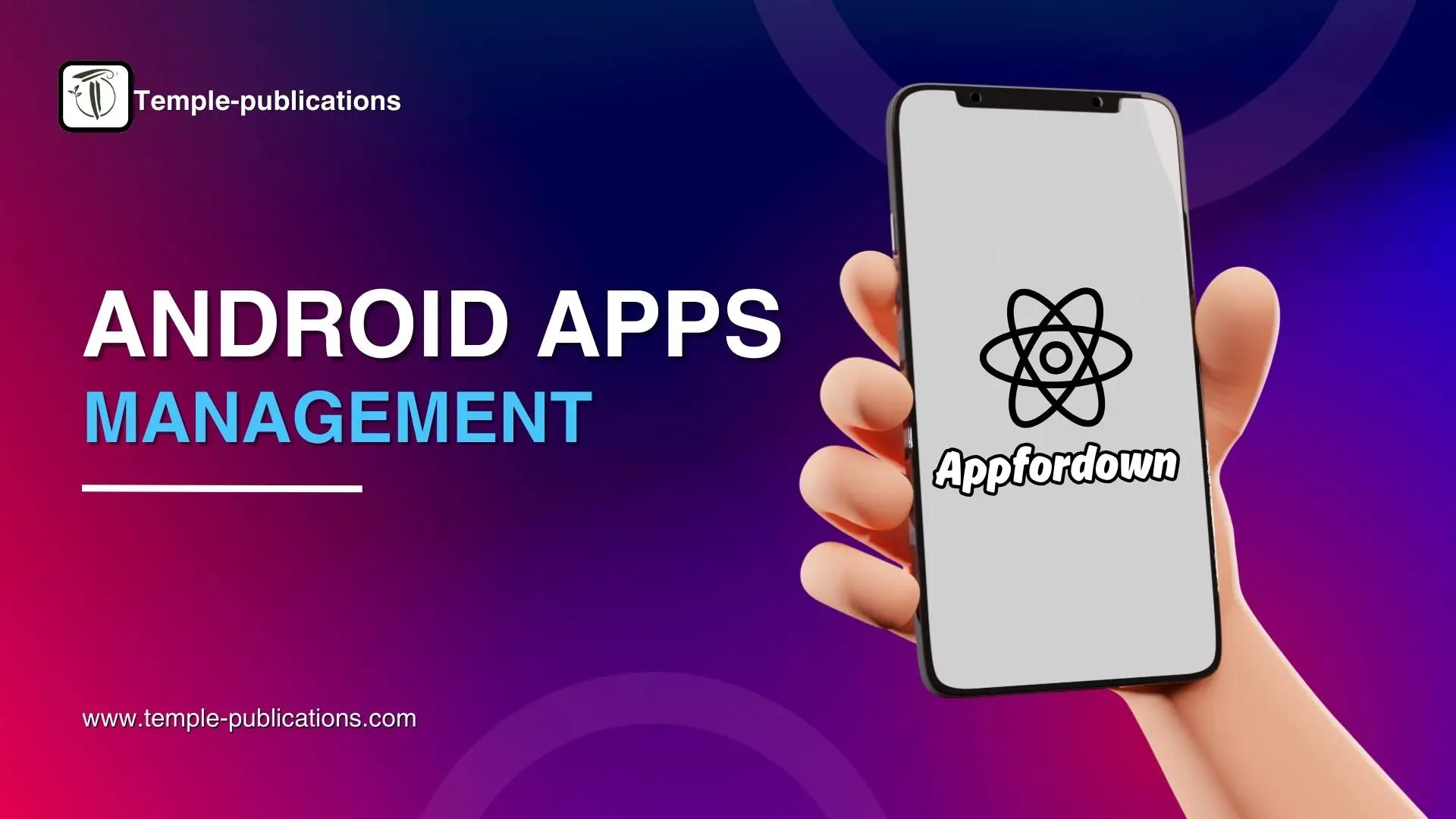
Appfordown is an advanced Android application designed to streamline the process of managing mobile applications. By consolidating various functionalities into a single platform, Appfordown simplifies app discovery, organization, and optimization. This app is crafted to cater to users who seek a more organized, secure, and efficient way to handle their mobile applications.
How to Download and Install Appfordown
- Visit the Official Source: Access the official website or app store listing for Appfordown.
- Download the App: Click the download button to obtain the installation file.
- Install the App: Open the installation file and follow the on-screen instructions to complete the installation.
- Troubleshoot Issues: If issues arise during installation, refer to the troubleshooting guide provided by Appfordown.
Setting Up Appfordown
After installation, users need to set up Appfordown to personalize their experience. Key setup steps include:
- Sync Existing Apps: Sync the app with existing applications to import data and settings.
- Configure Settings: Adjust settings such as notification preferences, appearance options, and account details.
- Personalize Recommendations: Set preferences to tailor app recommendations based on individual interests.

Key Features of Appfordown
Centralized App Downloading
Appfor-down centralized the application downloading process because it brings together all the application sources in one place. This integration saves the user the need to look for apps through different app stores, and websites. The social nature of the interface allows the users to obtain a variety of applications with popular games, and specific utilities. This approach also helps save time but at the same time, it enables the application to have a much more coherent user interface.
App Management
Central to Appfordown’s performance is the capability in the selection and control of applications. Users also organize individual applications into functional work trays that they can adapt to the users’ needs. It also offers users means to manage updates so that they can include newest features in the applications and security fixes into the system. Deleting unnecessary applications can be done with ease and users can also make copies of applications data before the change or resetting the device.
User Interface and Experience
Using the given app, for example, Appfordown, the design and layout include additional features that make it easier to use the application. The graphical user Interface of the application is well-defined and well-formatted for easy navigation with neatly organized sections for browsing, managing as well as discovering more apps. Moreover, it is intended to be friendly and convenient for users using both smartphones and tablets. There are preferences one can set to a given app, to the orientation and design the app has in addition to the functions it serves.
Performance Optimization
Performance optimization is a significant aspect of Appfordown. The app includes tools for cleaning up residual files, optimizing system performance, and managing resource usage. Features such as cache cleaning, memory management, and battery optimization help users maintain smooth and efficient device operation. These tools are designed to improve overall performance and extend battery life, ensuring that users get the most out of their devices.
Personalized Recommendations
Appfordown’s recommendation engine uses sophisticated algorithms to provide personalized app suggestions. By analyzing user behavior, preferences, and app usage patterns, the app offers tailored recommendations that align with individual interests. This personalization enhances the user experience by helping users discover new and relevant apps that they might not have found otherwise.

Security Features
The safety of clients’ information is something that Appfordown holds in high regard. This app filters all apps and only makes them available for the users to download hence protecting the users from any malicious software. It also ensures stringent privacy measures to protect the information which users input into the application besides the continuous enhancement of security features to accord with the increasing insecurity threats.
Future Updates and Roadmap
Still, there is a lot more to come in later updates, according to the Appfordown team. Among them are new features, upgrades in the performance tools, and compatibility improvements. The development team melts down on the idea of constantly updating the app in line with the users’ feedback and technological changes.
Privacy Policy and Terms of Use
Understanding its privacy policy and terms of use is essential for ensuring a secure and compliant experience:
- Privacy Policy: General information on how the user data is obtained, utilized, and secured.
- Terms of Use: Information provided in such countries contains full details of the rights and responsibilities of the users.
- Data Protection Measures: Explanation of how the application protects the users’ data from being hacked and adheres to the policies of data privacy.
Conclusion
Appfordown stands out as a powerful and versatile tool for Android users seeking to simplify app management and optimize device performance. With its centralized downloading platform, intuitive interface, and robust security features, it offers a comprehensive solution for managing mobile applications. By providing personalized recommendations, performance optimization tools, and effective app management, it enhances the overall user experience, making it a valuable addition to any Android device.
AI
Lillienu: AI-Powered Platform for Smarter Decision Making
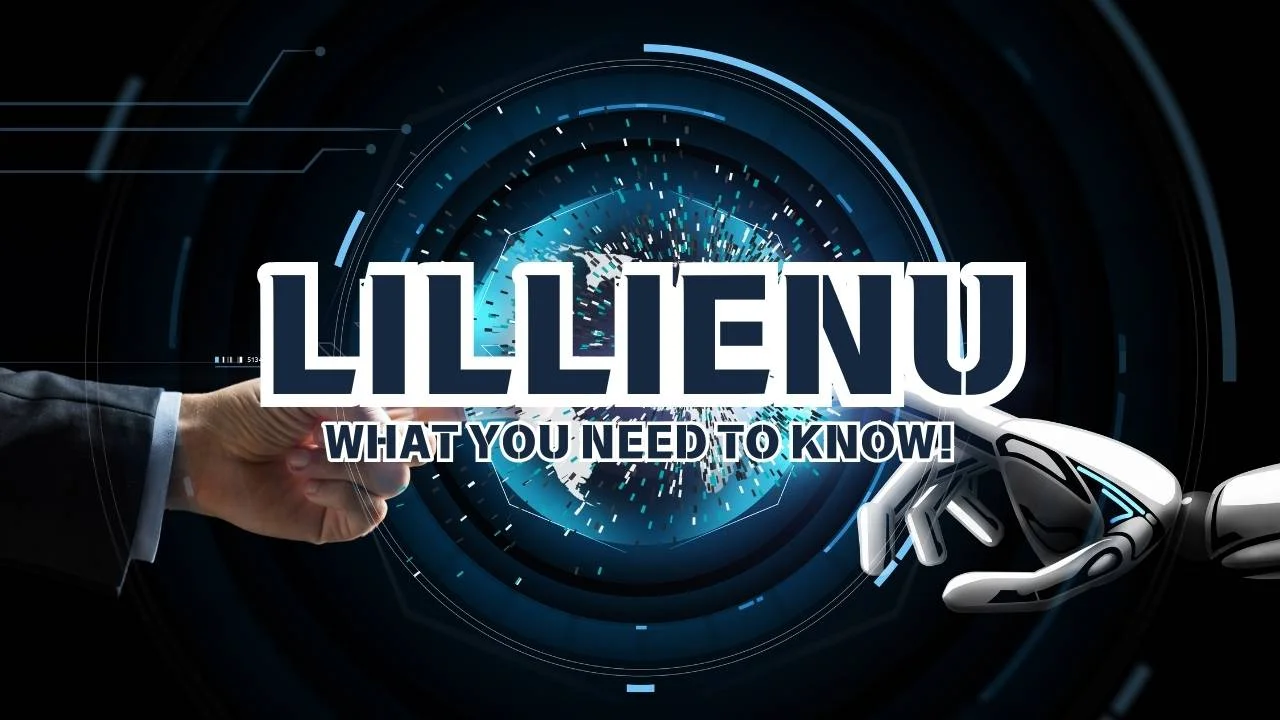
Lillienu is the most advanced AI, ML, and cloud camping platform that brings digital structures to optimality. As designed to handle maximum traffic data to analyzing nature, it help businesses to come up with accurate quick decisions. Lillienu meets current trends and increasing demand for automation and intelligent systems targeted at non-car businesses by implementing advanced algorithms and technologies needed for large business organization with large customer base. It is mainly concentrated on deriving value from the software from the users’ perspective as well as improving collaborators’ efficiency while deploying decision making processes and proper functioning. Dealing with the customer or dealing with large shipments of data, it provides solutions that enhance performance, minimize expenses, and increase accuracy of decision-making.
Understanding AI-Powered Decision Making
AI integrated decision making refers to using artificial intelligence to make decisions through analysis, pattern recognition and defining subsequent course of action. This has a positive effect on the speed and accuracy of business decision making processes that enable organizations change strategy with speed in responding to changing market conditions. This is improved on by machine learning, a sub category of artificial intelligence since it allows a system to learn from the data it has been fed, make predictions and improve on its decision making process each time. Lillienu goes a step further by including cloud since the program will have to be scalable and accessible. It further integrates these technologies to enable dynamic and data driven decisions making across industries.
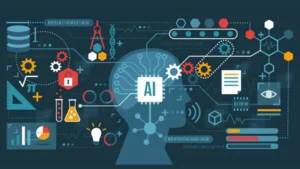
Applications of Lillienu in Various Industries
- Healthcare: Enhances diagnoses and treatment planning with advanced data analysis and AI-driven insights.
- Retail: Optimizes inventory management, demand forecasting, and customer personalization for improved sales strategies.
- Finance: Detects fraud, assesses risks, and enhances financial forecasting with accurate, data-driven tools.
- Manufacturing: Streamlines supply chains, improves production efficiency, and reduces waste through predictive analytics.
- Education: Personalizes e-learning experiences and improves institutional efficiency using AI-powered solutions.
Key Features of Lillienu
Lillienu offers a range of features that redefine digital optimization. Its advanced data processing capabilities allow organizations to handle massive datasets efficiently. Integration with existing systems ensures seamless adoption without disrupting current workflows. Real-time analytics provide insights that drive informed decisions, while automation streamlines processes, reducing manual effort. Additionally, its ability to personalize solutions makes it adaptable to various industries. By enhancing system performance through AI algorithms and leveraging cloud computing for storage and accessibility, it creates a robust platform for businesses. These features collectively make Lillienu an invaluable tool for enhancing decision-making, improving efficiency, and achieving sustainable growth.
How Lillienu Optimizes Digital Systems
Lillienu increases efficiency in the process by elimination of repetitive tasks in various digital systems. Using AI algorithms, the computer evaluates and processes data and immediately shows areas of problem and ways to fix them. Third, the cloud solutions that the platform is integrated with guarantee data storage and retrieval as well as scalability. For instance, a retail company might employ it to identify consumer’s behavior in buying patterns and manage the appropriate stock management, or possibly a health care entity may possibly improve the delivery of care through smart health status tracking. By automating routine processes and delivering insights, it improves overall system performance. It transforms digital operations, empowering organizations to focus on innovation and strategy rather than mundane tasks.
Benefits of Using Lillienu
- Increased Efficiency: Automates tasks and streamlines workflows to boost operational performance.
- Cost Reduction: Minimizes manual intervention and resource wastage, leading to significant cost savings.
- Enhanced Decision-Making: Provides accurate, data-driven insights to support informed business decisions.
- Improved User Experience: Personalizes services and delivers faster solutions for superior customer satisfaction.
- Scalability and Adaptability: Scales seamlessly with organizational growth, addressing evolving operational needs effectively.
Integration and Implementation of Lillienu
Integrating Lillienu into existing systems is seamless due to its compatibility with diverse digital platforms. The implementation process involves assessing organizational needs, customizing solutions, and deploying the platform with minimal disruption. Businesses can integrate Lillienu with CRM, ERP, and other enterprise systems to maximize efficiency. Customization options ensure that the platform aligns with unique business requirements. Once implemented, it starts analyzing workflows, identifying inefficiencies, and delivering actionable insights. Organizations also receive ongoing support for updates and system enhancements. This adaptability and ease of integration make it ideal choice for businesses looking to harness the power of AI, ML, and cloud computing.
Security and Reliability
Security and reliability is important for Lillienu. It also includes advanced encryption protocols in a way that all form of information which is sensitive cannot be accessed by anyone else apart from the user. The platform’s architectural design has also integrated AI to not only recognize but also prevent cyber threats in advance. Other tools regarding where data is backed up and recovered add to the reliability; protecting it from events that may occur. On this basis, it secures and provides relevant data storage based on cloud computing by allowing scalable access to the resources. These measures also help to pay attention to the regulations Regarding data protection and also gain the trust of the users.

Read Also: How to protect user data and user’s data privacy?
Future of AI and ML with Lillienu
Based on the current development and analysis, Lillienu is ready to spearhead the next generation of AI and ML adoption. Upcoming trends reveal enhanced promotion of intelligent technologies in the market. Through growth the company adapts to the development of technologies in the future, a factor making Lillienu relevant in future. The purpose of elaborating such platform has its desire on the automation process, scalability, and personalization, which corresponds to the increasing importance of intelligent systems. Some furtherance can be made on the use of more accurate forecasting or the gadgets, or real-time communication applications.
Conclusion
Lillienu is a relatively unseen advancement in the current age making use of artificial intelligence in decision making and digitization. When applied together as AI, ML, and cloud computing merge, it enables the business to make better decisions quicker and more accurately. It is a high value tool across industries due to it flexibility, productivity and adaptability that fosters innovation and efficiency. Used for improving the overall user experience to managing work processes, it changes the way that organizations prevail in the new world.. As businesses continue to embrace AI-driven solutions, it stands out as a pioneering platform that combines cutting-edge technology with practical applications. Embracing it means investing in the future of smarter, data-driven decision-making.
-

 BIOGRAPHY1 month ago
BIOGRAPHY1 month agoBehind the Scenes with Sandra Orlow: An Exclusive Interview
-

 HOME7 months ago
HOME7 months agoDiscovering Insights: A Deep Dive into the //vital-mag.net blog
-

 HOME10 months ago
HOME10 months agoSifangds in Action: Real-Life Applications and Success Stories
-

 BIOGRAPHY8 months ago
BIOGRAPHY8 months agoThe Woman Behind the Comedian: Meet Andrew Santino Wife



